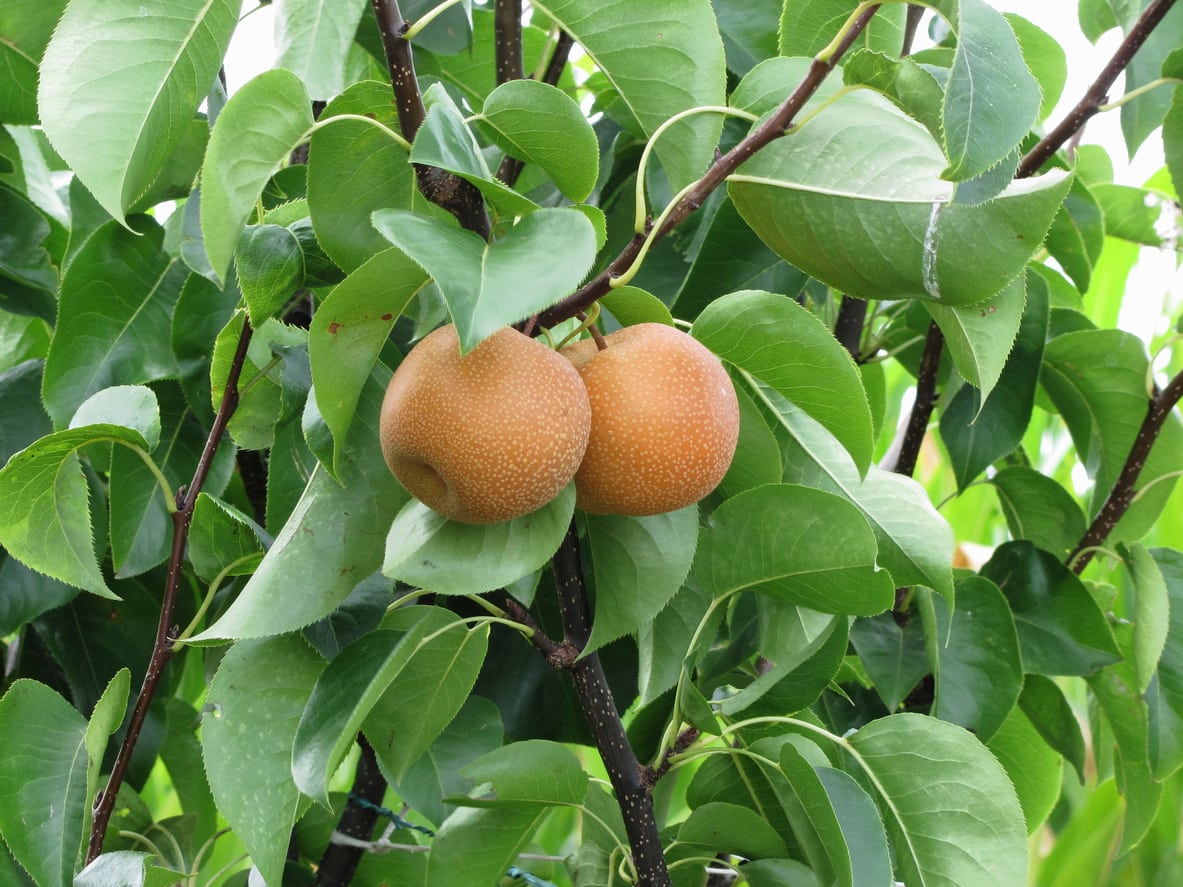



Nashi fruit or Asian pears, in Australia, are produced mainly in the Goulburn Valley of Victoria. The majority of the production is reserved for the fresh market. Nonetheless, a small portion of these fruits are kept aside for the export market as well.
As of 2020:
Nashi pears contain more than a dozen vitamins and minerals, including vitamin C, potassium and manganese, as well as vitamin K and copper, which are both important for bone and blood health. One pear has only 215 kilojoules and provides four grams of fibre.
Nashi pears are ripe when picked, so there is no need to wait to eat them – and they keep for up to three months in the fridge. Rather than squeeze them for ripeness (they’re hard), it is advisable to smell them: their quality is signalled by a strong, sweet scent. The skin varies from green-yellow and smooth to tan-yellow and slightly rough.
The nashi fruit mainly occurs in the Goulburn Valley region in this country. The other states primarily produce other fruits; however, the nashi fruit is limited to Victoria only.
Australia is mainly recognized as a net importer of this fruit. However, imports have been declining over the past few years. As of June 2020, Australia managed to import 2,843 tonnes of this fruit.